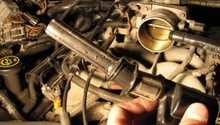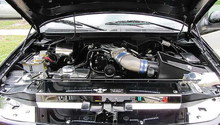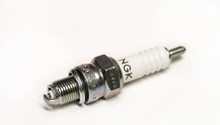Ford F-150/F-250: Why is My Truck Misfiring?
Diagnosing why a Ford F-150 or F-250 is misfiring is vital for a car owner in terms of saving costs. This walkthrough will help you understand the various causes of misfiring and identify which ones you can handle yourself.
This article applies to the Ford F-150 (2004-2014) and the F-250, F-350 Super Duty (2005-2014).
A misfire is what happens when a cylinder fails to combust its air/fuel mixture correctly. The result is an engine that stumbles, idles roughly, and doesn't perform at 100% power. Generally, a misfire will trigger the engine check light and the truck's exhuast will smell like gasoline. Misfires happen for several reasons, but most of them relate to the delivery of spark, air, or fuel to the cylinders. This article walks through a few of the most common causes.
Failing Coil Packs
For non-diesel trucks, a faulty ignition coil will often cause stumbles when driving at low RPM, and possibly a check engine light. Ford trucks tend to recognize misfiring coils and will register them with a diagnostic trouble code. You can read these codes (and tell which coil pack is failing) in two ways: scan the truck with an OBD reader, or take it to a local auto parts store to retrieve them. Although the work is tedious, you can change damaged coil packs yourself at about $40 per coil. However, a mechanic may charge $125 to change each coil inclusive of the purchase price.
Related Sites:
- How to Replace an Ignition Coil - Ford-Trucks.com
- Misfiring After Heavy Rain - F150Forum.com
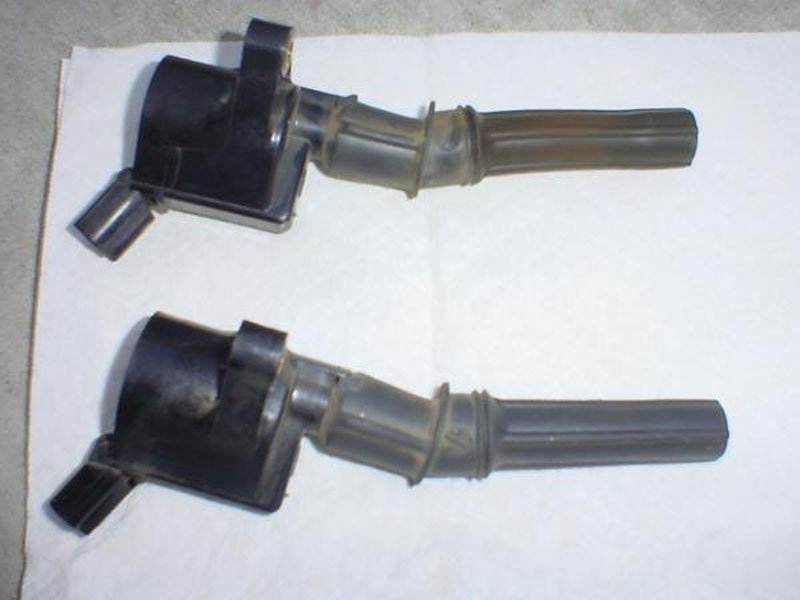
Clogged Fuel Filter
A clogged fuel filter in a Ford F-150 or F-250 truck will cause its engine to sputter and misfire. Replacing the filter should help sort the misfiring problem, but if misfiring persists it can also indicate a faulty fuel injector. Damaged fuel lines cause the engine to misfire and can possibly start a fire in the engine. Dirt or rust in the fuel tank will clog the filter. This is more of a problem for older trucks than newer models.
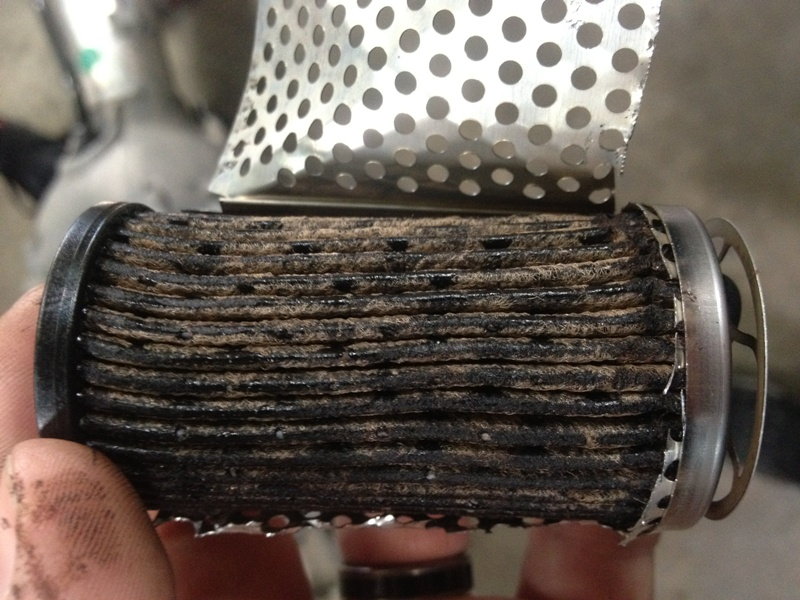
Bad Injectors
Injectors can get clogged if the fuel filter has been neglected. This results in a poor spray pattern, low fuel flow, and misfiring. Typically, a failing injector will throw an check engine light and register a diagnostic trouble code. Test the injector you think is bad is by swapping it between cylinders. If the misfire follows the injector, you know it's that injector that's failing. If it doesn't, then something else (like the spark plugs) might not be working correctly.
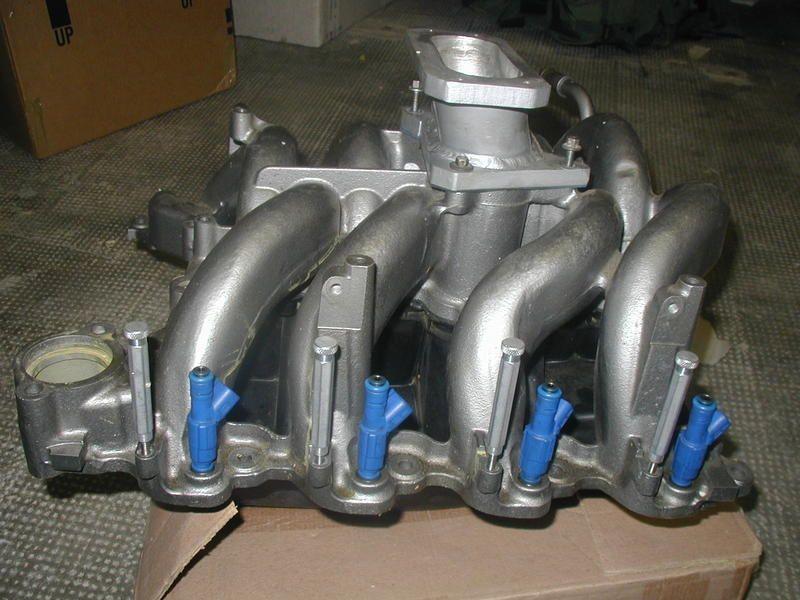
Failing Spark Plugs
Engines will misfire if the spark plugs have been fouled or otherwise need changing. Spark plugs are actually quite long lived. Ford recommends changing them after 100,000 miles. That said, an engine that is running poorly will drastically shorten the life of a spark plug. They're the only part in the combustion chamber that's easily removable. For that reason, checking the spark plugs is a shortcut towards checking engine health. Antifreeze leaking into the spark plug tubes or intake manifold will result in an engine misfiring, too; although in this case, you likely also have a blown head gasket.
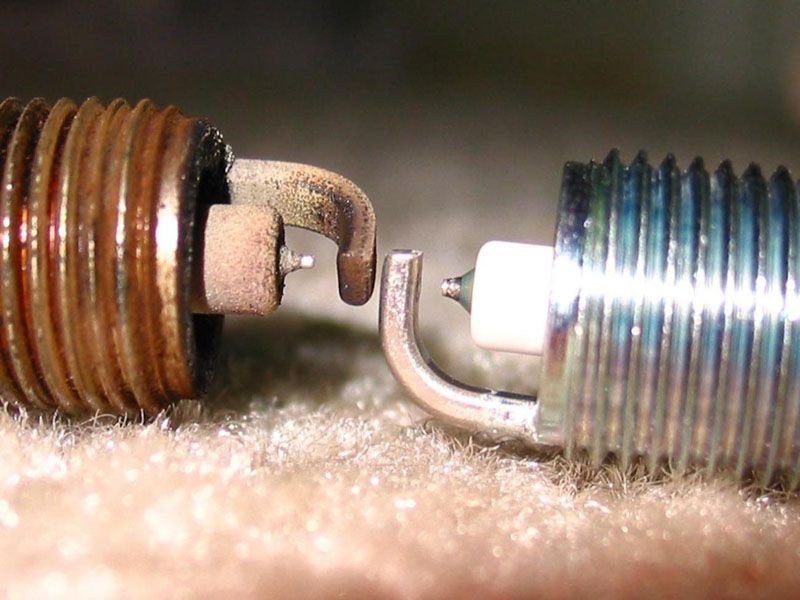
Low Cylinder Compression
Compression is vital in an engine since it raises the pressure of the air/fuel mixture high enough for a spark to start the combustion process. Engine cylinders with low compression due to wear and tear will misfire under load. Low compression could be caused by a blown head gasket, cracked piston rings, a crack in the cylinder wall, worn valve seats, and essentially anything else that would allow air to rush out of the cylinder.
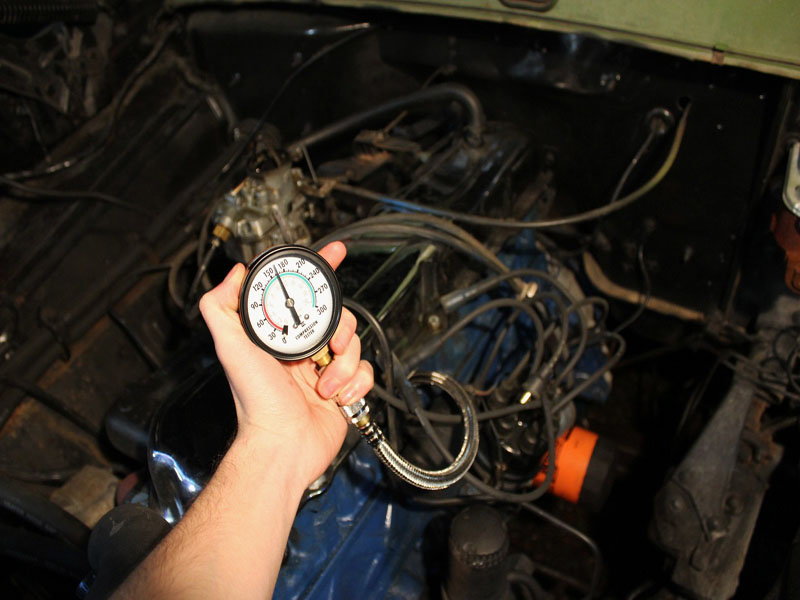
Clogged/Melted Catalytic Converters
An engine that is running rich will send unburnt fuel into the catalytic convertor where it will burn. Too much of this will overheat and melt the internals of the converter, ruining it. Back pressure from the exhaust disrupts the combustion process and puts strain on the the engine and causes misfires. The damage scales with engine speed and exhaust volume.
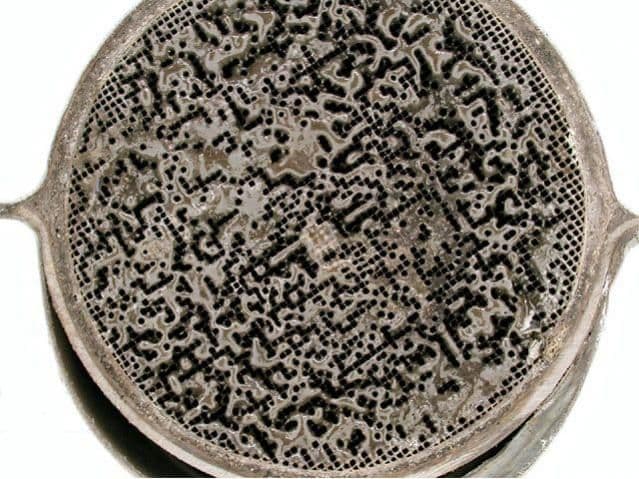
Additional Advice
The odor emanating from the exhaust tail pipe could indicate a coolant or antifreeze is leaking into the engine. Ford F-150 and F-250 owners should always consider seeking services of a skilled mechanic since misfiring can be caused by many factors besides the aforementioned. Also, avoid damaging sensitive engine parts like spark plugs or coils when cleaning the engine bay by using a high pressure air nozzle instead of water to blow away dirt.
Featured Video: Why is My Ford F-150/F-250 Truck Misfiring?
Related Discussions and Site
- Misfiring: Engine Smoke and Gas Smell - Ford-Trucks.com
- Misfiring: Flashing Check Engine Light - Ford-Trucks.com
- Misfiring: After Heavy Rain - F150forum.com

